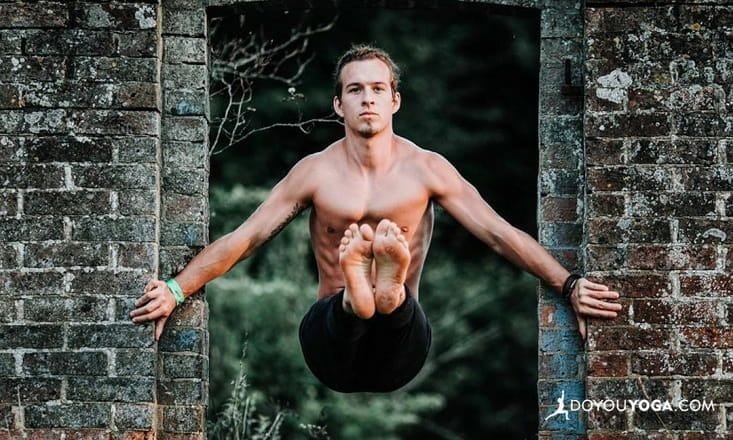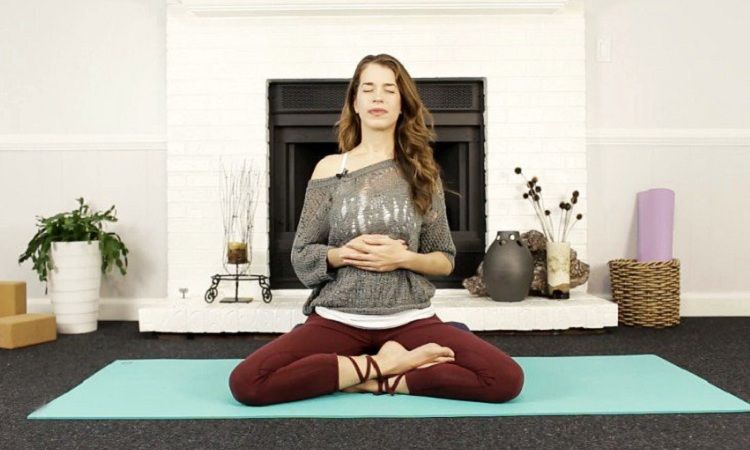Most people who’ve been practicing yoga for a while have a yoga origin story. Mine began when I was only eight years old. At the time, I was a competitive swimmer, training several days a week, and competing in regular races.
Our coach was an intense man with the goal of getting his swimmers into the Olympics. As such, we didn’t just swim. We studied the mechanics of our strokes. We lifted weights and cross-trained. We did team cheers before each race for motivation. And yes, he introduced us to yoga and meditation, not to attain enlightenment, but to help us become stronger swimmers, both physically and mentally.
I often tell this story as an example of how people enter the practice of yoga with different goals. For many, it’s a spiritual practice. For others, it’s a tool to achieve exceptional physical conditioning. Yoga has been found to improve athletic performance in adults. In fact, many professional sports programs now incorporate yoga into their training programs.
If you are an athlete looking to integrate yoga into your regimen with the primary goal of increased physical prowess, you might discover some other, unexpected benefits. Read on to learn how yoga might surprise you.
Improved Breathing
Yoga includes the practice of pranayama, also known as breath regulation. Most yoga classes begin with a focus on breath and will typically include cues throughout to help students deepen their breath. A recent study found that yoga increases what is known as the vital capacity of the lungs, which is the amount of air a person can take into their lungs on their inhale breath.
One simple type of pranayama is known as belly breathing. To try it, close your eyes and draw your attention to your breath. Inhale through your nose and draw your breath down, feeling your belly expand like a balloon. Exhale through your nose and feel your belly contract.
Try practicing this for a few minutes each day, alone or as part of your mat-based asana (yoga postures) routine. When you return to your sport of choice, begin to notice how your breathing has changed.
2. Body Awareness
I was an avid runner when I first started practicing yoga daily. Only a few weeks into this daily practice, I started to become deeply attuned to the needs of my body. What before had just been a collection of parts became a finely calibrated system.
Yoga helped me to realize that everything is connected. If my gait was off, for example, that wasn’t just an issue for my feet, because my feet are the base of support for my knees and hips, which in turn affect my spine, leading all the way up to my neck and brain. Taking care of one part of my body was good for the entire system.
As I continue to age and my body changes, my yoga practice has helped me to have a firm foundation of body awareness, and a deep, powerful, and positive relationship with my body. Lately, I’ve been doing more strength training and I credit my progress there to first understanding my body through yoga.
3. Acceptance of Injuries
A few weeks ago, I overdid it with squats and began to notice some pain in my outer left hip that I attributed to a mild bursitis. Having just hit my groove in my strength training, I was a little frustrated at first. However, yoga has taught me how to ride the waves of life. In the past, I might’ve let that frustration derail my progress. Instead, I accepted this injury as just a part of life.
Yoga teaches me that change is inevitable. That means that injuries, pain, and illness might come, but that also means they’ll leave as well. I accepted my injury, looked at it objectively, continued to train the parts of my body that were feeling well, and soon felt much better. I returned to the exercises that targeted my hip flexor with a more moderate approach.
As an athlete, you probably have experience with injuries since you are training at the upper limits of your body. Incorporating yoga into your routine can help you to keep a positive and flexible mindset when you are in the stages of recovery.
4. Nutritional Balance
True story: I used to be really addicted to Diet Coke. I’d started drinking it as a teenager and up until a few years ago, I would drink about three or four sodas each day. Every time I’d read news articles about research showing how bad diet soda is for our bodies, I would decide that I’m done drinking it. But no matter how hard I tried, I couldn’t quit.
Then came yoga. After a decade of trying to quit, with many unsuccessful attempts under my belt, my craving for soda faded away with seemingly no effort on my part. I stopped buying it and drinking it. It was the strangest thing.
I attribute this to my yoga practice which taught me how to develop stronger self-regulation of my behaviors and habits. As an athlete, you probably understand the importance of healthy eating to your athletic success. You might be surprised to find that yoga helps you to eat healthier and to drop any remaining bad health habits.
5. Mental Clarity
Another aspect of yoga is the practice of meditation. Remember how pranayama is about breath awareness? Meditation is about thought awareness. It trains people to become more aware of their thoughts and to develop a greater control over the content and flow of their mental energy.
I can remember, as a young swimmer, I performed worse in the races where I allowed doubts to enter my mind. So I trained myself to replace those thoughts with positive affirmations and saw an immediate improvement in my speed and capacity. No matter your sport of choice, learning how to notice your thought processes can be a powerful tool to help improve performance, motivation, and endurance.
A person’s yoga practice is a bit like a snowflake: each one is unique. While improved physical performance in your sport is a very likely outcome of integrating yoga into your routine, you’ll also experience other mental, physical, or spiritual benefits. Start slowly, listen to your body, and enjoy whatever comes.
Image credit: Dan Morgan
Jake Paul White







